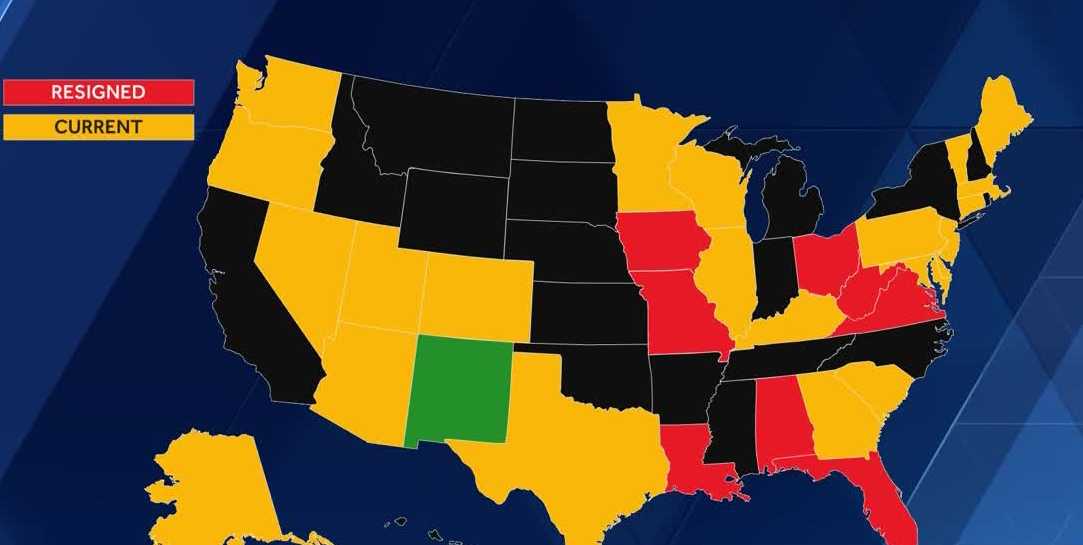Election fraud technology; where does New Mexico stand?
To prevent election fraud, states have been using technology that tracks if voters have cast ballots in multiple states. But some are pulling out of using the system. The system is called the Electronic Registration Information Center, known as “ERIC” for short. New Mexico, however, has no plans to drop out even though some states say it is creating problems. Top election leaders from nearly every state gathered in Washington, D.C., to raise the alarm about new threats, and how to keep our elections free and fair. “I don’t think any election administrator in this country is not worried about this issue,” said Maggie Toulouse Oliver Toulouse Oliver is the secretary of state for New Mexico. She was one of the people involved in the conversation in Washington. “So, we’re spending this time in the lead up to 2024, getting as educated as we possibly can about the potential implications of A.I. and building plans to be able to fight back against the mis and disinformation that we anticipate will come,” Toulouse Oliver said. Using artificial intelligence to help track whether people are double voting in multiple states was the big topic. Toulouse Oliver is one of the secretaries of state who has been behind the electronic registration information center. States participating in the system send voter registration data to it. “ERIC” then compares it to other states and data from the social security death administration and the post office to see if people have died or moved. “It’s one of the best, most effective tools to keep our voter registration database accurate. Not only are we able to figure out when folks have moved into our state or out of our state, we’re also able to figure out whether folks have tried to vote in more than one state,” she said. But some states are pulling out. Many of them with GOP secretaries of state who say the system is a liberal plot to control voter roles. The map below shows those states. Others say since it does not capture every state, it’s not worth the thousands of dollars in taxpayer money they pay each year.According to ERIC’s website, there are 26 states participating. “Really, this has come down to be a political proxy fight over the 2020 election. Folks who are in the elections in our community are really pushing my Republican colleagues to, you know, take these kinds of political stands for reasons I don’t really understand. Frankly, it’s undermined one of the last really important bipartisan tools that we have as election administrators,” Toulouse Oliver said. Hearst Television’s national investigative unit caught up with Republican secretaries of state about why they pulled out of the system, and they also investigated why some election workers plan to quit before next year’s presidential election. That story will air Thursday on Action 7 News at 4.
To prevent election fraud, states have been using technology that tracks if voters have cast ballots in multiple states.
But some are pulling out of using the system.
Advertisement
The system is called the Electronic Registration Information Center, known as “ERIC” for short.
New Mexico, however, has no plans to drop out even though some states say it is creating problems.
Top election leaders from nearly every state gathered in Washington, D.C., to raise the alarm about new threats, and how to keep our elections free and fair.
“I don’t think any election administrator in this country is not worried about this issue,” said Maggie Toulouse Oliver
Toulouse Oliver is the secretary of state for New Mexico. She was one of the people involved in the conversation in Washington.
“So, we’re spending this time in the lead up to 2024, getting as educated as we possibly can about the potential implications of A.I. and building plans to be able to fight back against the mis and disinformation that we anticipate will come,” Toulouse Oliver said.
Using artificial intelligence to help track whether people are double voting in multiple states was the big topic.
Toulouse Oliver is one of the secretaries of state who has been behind the electronic registration information center.
States participating in the system send voter registration data to it.
“ERIC” then compares it to other states and data from the social security death administration and the post office to see if people have died or moved.
“It’s one of the best, most effective tools to keep our voter registration database accurate. Not only are we able to figure out when folks have moved into our state or out of our state, we’re also able to figure out whether folks have tried to vote in more than one state,” she said.
But some states are pulling out. Many of them with GOP secretaries of state who say the system is a liberal plot to control voter roles.
The map below shows those states.
Others say since it does not capture every state, it’s not worth the thousands of dollars in taxpayer money they pay each year.
According to ERIC’s website, there are 26 states participating.
“Really, this has come down to be a political proxy fight over the 2020 election. Folks who are in the elections in our community are really pushing my Republican colleagues to, you know, take these kinds of political stands for reasons I don’t really understand. Frankly, it’s undermined one of the last really important bipartisan tools that we have as election administrators,” Toulouse Oliver said.
Hearst Television’s national investigative unit caught up with Republican secretaries of state about why they pulled out of the system, and they also investigated why some election workers plan to quit before next year’s presidential election.
That story will air Thursday on Action 7 News at 4.
This article has been archived for your research. The original version from KOAT New Mexico can be found here.


